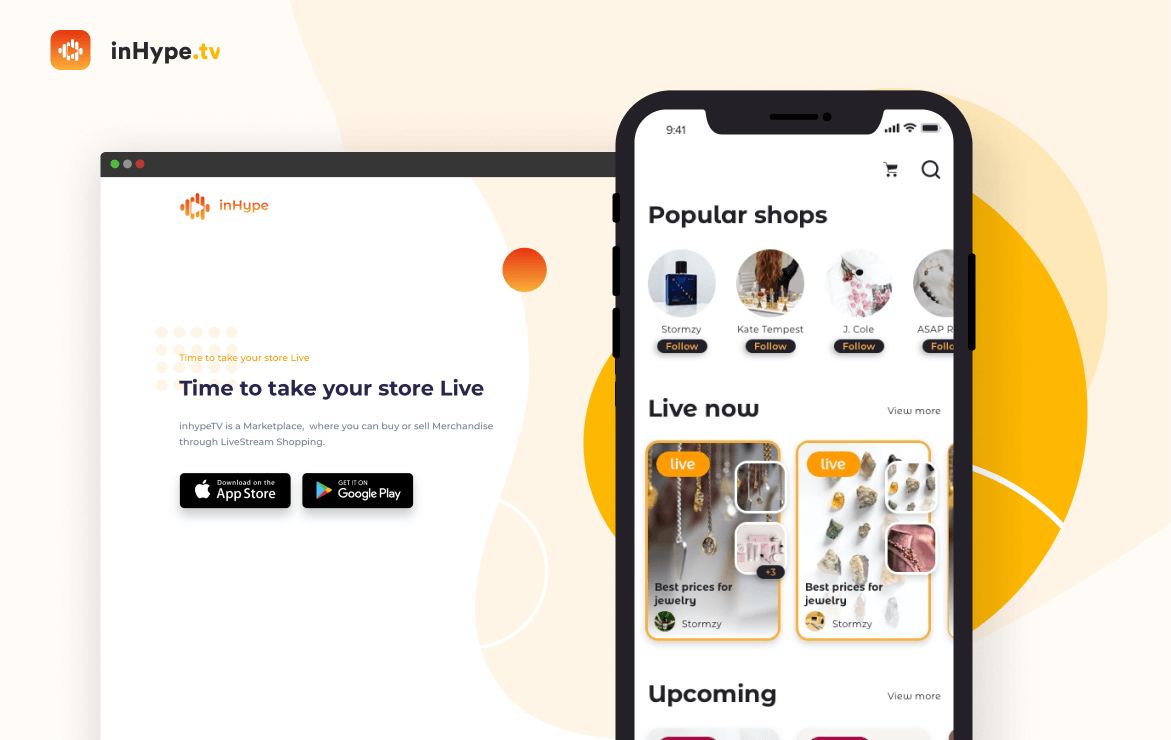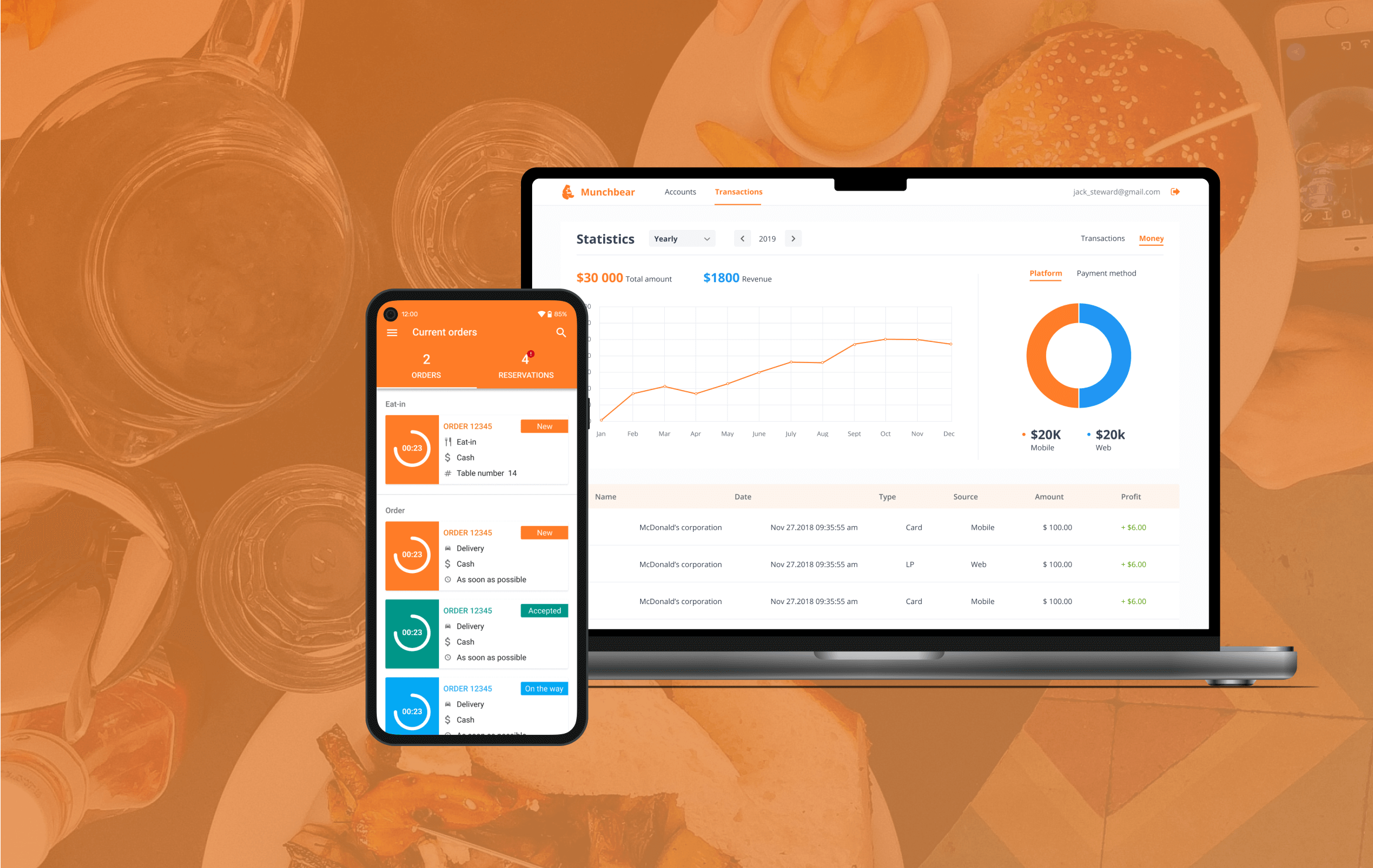От халепа... Ця сторінка ще не має українського перекладу, але ми вже над цим працюємо!

Making the right choice: 12 things to know about prebuilt and custom eCommerce platforms

Kateryna Hritsai
/
Technical writer
7 min read
Table of contents:
You won’t believe how big the global eCommerce market is. By some estimations, it’s expected to be worth $7,750.5 billion by the end of 2022, with anticipated growth to $20,313.5 billion by 2028.
But how do you get a piece of this pie? How do you start and scale your eCommerce business?
We think the secret to getting your piece of the pie is your eCommerce platform’s sustainability, reliability, and flexibility. Which eCommerce platform you choose directly impacts those factors, hence, your eCommerce business’s success.
To make the right choice, you need to know the key characteristics of the two common types of platforms.
That’s what we’ll tell you in this article. We’ll compare the most distinctive features of custom eComerce platforms and prebuilt platforms. Then we’ll share some success stories from NERDZ LAB’s vast experience.
See also: Top features for health and fitness apps
Custom and prebuilt eCommerce solutions: A quick dive
First, let’s establish definitions.
A custom eCommerce platform is a software product built to meet a merchant’s or service provider’s specific needs. It’s usually created from scratch and serves a specialized purpose and audience. Custom eCommerce software solutions typically emphasize the uniqueness of a business and highlight a brand due to its one-of-a-kind nature.
Meanwhile, a prebuilt platform, be it a solution built on SaaS-based Shopify or a PaaS-based Magento, generally uses templates to build an eCommerce website. SaaS and PaaS templates differ only in the extent of customization possible. Like SaaS-based platforms, PaaS-based platforms have templates, but they allow more freedom, primarily due to a wide variety of add-ons and API compatibility features. Still, prebuilt eCommerce platforms are intended for a broad audience to start a sales business and run it until scaling.
The agony of choice: How to pick the right one?
Before you begin a head-to-head comparison of the two types of platforms, ask yourself a few critical questions.
- How much will my business scale?
- Is there a unique purpose behind my eCommerce solution?
- How soon do I want to start selling?
- What’s my budget?
The answers will give you a clearer sense of direction.

Not pros or cons, just differences
Now let’s get to the meat of the matter: comparing the obvious (and some hidden!) characteristics of custom and template-based eCommerce solutions.
Custom eCommerce software
Based on our extensive experience, here are some essential qualities to consider.
Full possession of your data. Custom software implies that you’re the one and only owner and beneficiary of your data; no third parties or intermediaries can access or manage the data. This promises a higher level of security and data integrity.
Stand-alone management of the server. Although having full possession of your data may sound enticing, processing large quantities of data might present a new challenge for you. Choosing a reliable server will be critical.
Free rein. A custom solution built from scratch specifically for your eCommerce business needs gives you total control over its setup. Everything, from layout to UX and design to shopping cart and payment system, serves to differentiate your business.
Resource-intensive development. Building custom eCommerce software demands a lot of coding. Unless your company has strong software engineering skills, you will need to hire an eCommerce software development team. The cost — which depends on numerous factors like design, functionality, QA, maintenance, number of integrations, domain purchase, and hosting — can range from $15,000.
Also, consider that building a platform from scratch may take up to a minimum of 2 months. However, NERDZ LAB’s experience shows that we can typically build a custom, reliable, and unique minimum viable product (MVP) for most eCommerce solutions within about two weeks, then expand its functionality over time.
Device compatibility. Increasingly more customers prefer mobile devices for online shopping. Hence, nowadays, custom software is typically set up so that users can access it equally well from any device, buy online with a poor network connection, or even entirely offline. This offers a better UX and decreases the customer churn rate of your eCommerce platform.
Brand awareness and market presence. A custom eCommerce solution allows you to establish and manage your own CMS and apply SEO techniques for more efficient marketing campaigns. Thus, you can highlight and strengthen your brand and unique selling points, or USPs.

Prebuilt platforms
First, let’s acknowledge that custom software solutions aren’t ideal for every type of eCommerce business. That said, the crucial characteristics of pre-made solutions are basically the flipside of the custom solution characteristics.
Simple design and setup process. Due to the broad choice of templates available, building your store is relatively easy and requires little to no coding, especially if your eCommerce business model resembles already existing models.
Limited functionality and scalability. The template limits prebuilt platforms’ full functionality and performance and doesn’t allow for extensive transformation.
Take into account: if you need the vendor to modify your eCommerce store, the expense may exceed the entire cost of a custom eCommerce platform. In addition, you might find yourself buying a plan for a template with features you’ll never use.
Resources efficiency. Due to the simplicity of a template, creating a store with a prebuilt platform can take several hours to several days, which is a relatively quick start compared to custom-built solutions.
It’s a cost-effective solution for startups with a limited budget. A lot depends on the platform your business chooses. For instance, Shopify’s monthly costs for using a prebuilt template range from $29 to $299. Vendors also charge additional monthly fees based on your shop’s revenue.
Operations management. Because the vendor is responsible for platform setup, maintenance, security, and customer support, your business can focus on product assortment, renewing inventory, making sales, and further business growth.
Data intermediaries. As soon as a business places and transmits its information to a prebuilt platform, it doesn’t belong to this business anymore; it goes to a template vendor instead, and a company can’t regulate its spread. The layer between your eCommerce business and your customers is beyond your control. Note that the prices for your goods can increase by a vendor’s initiative; a vendor can implement and cancel your store’s features or impose different limitations on your store.
Lack of competitive advantage. Using the standards and rules set by prebuilt eCommerce platforms, you sacrifice expressing the uniqueness of your business and decrease your chances of standing out among the competition.

Get more insights: Software development pricing models
Custom eCommerce software development with NERDZ LAB
We build products with a long-term strategy, freedom to customize, and the ability to scale. So, we’d always choose custom eCommerce software development over pre-built solutions because it offers the freedom to scale, the ability to scale, and to plan for the long term. We use the latest, most reliable technology stack to create your solution and ensure that every product detail is standard-approved by the industry and tailored to your needs.
The following is a rough list of what we can offer clients who partner with us for eCommerce software development.
Front-end stack:
- React.js, Next.js
- Vue
- JavaScript, TypeScript
Back-end stack:
- Node.js
- PHP, Laravel
Online payment systems:
- Stripe
- Worldpay
- Braintree
- Authorize.net
- Pinwheel
Сustom eCommerce development cases
Now, it’s time to share some of our client stories.
inHype: A custom eCommerce platform with Livestream shopping
inHype asked NERDZ LAB to build an MVP with essential core functionalities within two weeks to demonstrate the platform’s value to investors.
The concept for their custom eCommerce platform involved merchants presenting products during live streams while interacting with potential buyers using live chat to make sales. The platform needed to be sufficiently different from Instagram, which also has a shopping feature.
We built an MVP with the claimed features like real-time communication and sale and created a brand identity that helped the client convey the main idea.
Key features: Livestreaming from merchants’ device cameras, live chat, and Stripe payments
The whole case study is available here.

WhatSalon: A marketplace for booking salon services
WhatSalon approached us with an existing iOS app and a web app and asked NERDZ LAB to revisit their app designs and functionalities to augment them.
The idea for the app, and its primary value, was to let users book salon services with a variety of providers via a user-friendly platform.
We rebuilt a custom eCommerce platform for them completely. We implemented a microservice architecture allowing the apps to scale and maintain interoperability between present and future CRM systems. We implemented a dynamic search algorithm to provide a convenient browsing experience for users. Furthermore, we managed data storage through a newly-developed Salon dashboard portal that works with the iOS and Android apps and the web app. WhatSalon maintains six leading salon CRM vendors and allows for API integrations.
Key features: An extendable marketplace, appointment booking, geolocation, and Stripe payments
You can read the entire case study here.
See also: Key principles of product design: a quick guide for founders

MunchBear: A multitenant restaurant ordering platform
MunchBear reached out to NERDZ LAB to help build a custom eCommerce platform for ordering from restaurants.
The concept was an all-in-one solution for customers to place orders from different restaurants and for the restaurants to manage the orders.
NERDZ LAB enabled restaurant entity management through multitenant architecture. In addition, we automated existing branded restaurants’ websites with Continuous Integration and Continuous Delivery (CI and CD, respectively) methodology. We also managed a large amount of report data from different resources like CRMs and admin panels.
The client received a solution with two mobile apps (one for customers and one for restaurant vendors) and a web portal.
Key features: Online ordering, order delivery feature for restaurants, payment, customers’ booking management through CRMs, food order requests to the kitchen, and check to print for deliveries.
You can learn more about our development of MunchBear’s custom eCommerce solution here.

A few concluding words
All in all, your choice between a custom or a prebuilt eCommerce solution comes down to your business model, target audience, budget, and timeline.
Business startups wanting to market quickly and aiming for stability but not yet ready to invest in custom eCommerce software development may feel comfortable with prebuilt platforms.
Businesses ready to scale or that occupy a particularly unique niche tend to choose an eCommerce platform built from scratch. This approach might also be wise for products and services with complex workflows or alternative payment methods.
Either way, we at NERDZ LAB can always find a solution for all types of businesses. Want to drop us a line?



